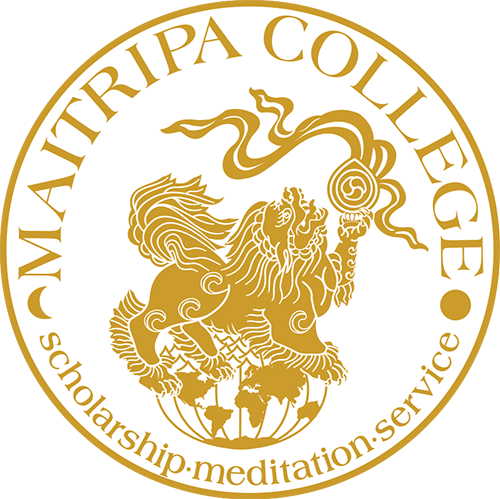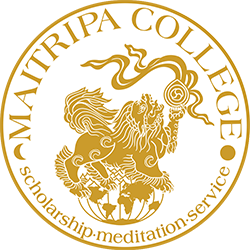“The Action Research Project is a form of integrative and collaborative research, reflection, and writing. Students become researchers by choosing a principle question and working with faculty mentors to design a research project. The action researcher is at the center of the inquiry, change, and learning that comes through the process. Action research impacts the researcher on personal and professional levels, and intends to positively impact others as well.” –ARP502 Course Description
Sections
Topic Development | Ethics | Methodologies | Searching | Evaluating Resources | Organizing Your Research | Reading | Writing | Literature Review
Topic Development
Develop a Thesis: What makes a strong thesis and how to craft a thesis
Libraries, Indiana University Bloomington PDF
Five Types of Thesis Statements
Digital Learning Commons, University of Guelph learningcommons
Four Steps to Narrow Your Research Topic
Digital Learning Commons, University of Guelph learningcommons (video)
From Topic to Research Question
Libraries, Indiana University Bloomington PDF
One Perfect Source: Broaden your scope to find articles to support your topic
Anne Burke, NC State University Libraries lib.ncsu.edu (video)
Picking Your Topic Is Research
Your topic will likely evolve as you begin to research. Choosing and revising your topic is part of the research process.
Anne Burke, NC State University Libraries lib.ncsu.edu (video)
Ethics
“The Belmont Report: Ethical Principles and Guidelines for the Protection of Human Subjects of Research.” 1979. Department of Health, Education, and Welfare. hhs.gov
Methodologies
- Creswell John W and Cheryl N Poth. 2018. Qualitative Inquiry & Research Design: Choosing among Five Approaches. 4th ed. SAGE. JABL
- McNiff Jean. 2013. Action Research: Principles and Practice. 3rd ed. Routledge. JABL
- Moschella, Mary Clark. 2008. Ethnography As a Pastoral Practice: An Introduction. Pilgrim Press.
- Moschella, Mary Clark and Susan Willhauck. 2018. Qualitative Research in Theological Education: Pedagogy in Practice. SCM Press. JABL
- Payne Richard K Scott A Mitchell and Natalie E. F Quli. 2021. Methods in Buddhist Studies: Essays in Honor of Richard K. Payne. Bloomsbury Academic. JABL
- Studying Faith: Qualitative Methodologies for Studying Religious Communities
- Wertz Frederick J. 2011. Five Ways of Doing Qualitative Analysis: Phenomenological Psychology Grounded Theory Discourse Analysis Narrative Research and Intuitive Inquiry. Guilford Press. JABL
Searching – Online Databases
- Subject Guide search with Subdivisions
- Advanced Search with proximity, nesting
- Limit Results to Academic Journals
- Refine Results by Subject, Publication Title, Date
- Use More Like This and Related Subjects in relevant articles
- Check References for deep dive
- “Login in With Google” – with your @maitripa.org account
- Set up your workspace with a folder for each topic
- Expand search to All Content if results are few (email librarian citations for access to articles)
- View References and Related Texts in relevant articles
- Narrow results by Subject
- Use Text Analyzer
Evaluating Resources
- Evaluating Internet Resources
Georgetown University Library library.georgetown.edu - Evaluating Sources
Berkeley Library, University of California lib.berkeley.edu - Know Your Sources
Portland Community College Library pcc.edu - Evaluating Sources Rhetorically PDF
- Evaluating Wikipedia wikipedia.org
Organizing Your Research
Decide how you will store and organize your research before you begin:
- Print articles, organize in physical folders, using index cards for each source
- Download articles to your computer, organize in digital folders by topic/search
- Use bibliographic management software to store articles with features for organizing and creating citations
Keep track of your searches – when, where, what worked, what terms you used, how many results, were the results relevant?
- Create your own log, or download this one
- Email articles and citations to yourself as you search
- Create bookmark folders to save links by topic/search
- Keep a physical notebook for each research assignment for taking notes
- Print web pages you cite; websites are often updated and may not be the same at a later date when your faculty checks your source.
- Comparison of reference management software
wikipedia
Choose a management resource and learn how to use it before you begin your research. Some are more advanced/complicated than others. - How to use Zotero (A Complete Beginner’s Guide)
YouTube
Using MyBib for Citations
YouTube
Chicago Manual of Style 17th Edition (Author-Date) – citation samples
chicagomanualofstyle.org
Cite your work following Maitripa Style Guide
Reading
- How to Read a Scholarly Article, NC State University Libraries — lib.ncsu.edu (video)
Three NC State faculty members respond to the questions: What is your process for reading a scholarly article? How long does it take you to read a scholarly article? Does your reading process change when you read articles from different disciplines? What is one piece of advice you would give to a student who was attempting to read a scholarly article? - Reading Scholarly Articles: Joining the Conversation — download pdf
Strategies to help you read and use scholarly materials effectively. You may find that many academic texts offer meaningful ways to explore your and others’ ideas and perspectives. - Peer Review in 3 Minutes, NC State University Libraries — lib.ncsu.edu (video)
Articles are evaluated by asking questions to judge the quality and significance of the research: What is this research about? Is it interesting? Is it important? Is the methodology sound? Are the conclusions logical? and Are the findings original?
Literature Review
- AI Tools for Research and Writing, Graduate Theological Union Library — libguides.gtu.edu
- Literature Reviews, Writing Center, UN Chapel Hilll — writingcenter.unc.edu,
What are they, how to prepare, strategies for writing. - Literature Reviews: An Overview for Graduate Students, NC State University Libraries — lib.ncsu.edu (video)


